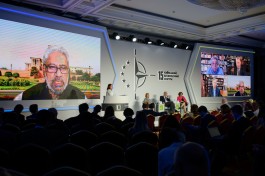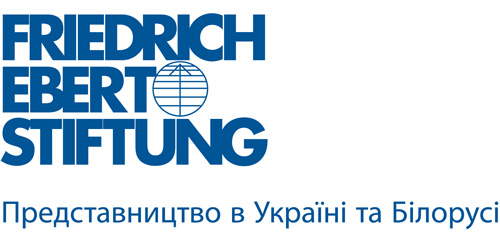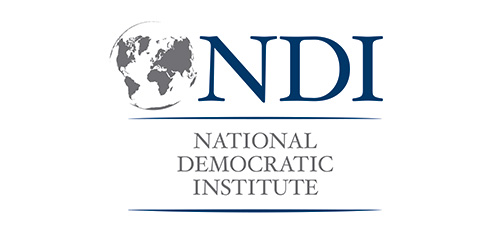Dimitrios TRIANTAPHYLLOU: THE BLACK SEA REGION’S REGIONALISM AND DEMOCRATISATION DEFICIT
The process of regionalism in the Black Sea Region finds itself on the back burner as key stakeholders prefer to maintain a status quo and control over the course of developments in the region or are increasingly uninterested in the region per se. There is a growing condominium between Russia and Turkey on the need to maintain the status quo coupled with the growing detachment of the European Union and the general disinterest of the United States.
Dimitrios TRIANTAPHYLLOU, Director of the Center for International and European Studies (CIES), Assistant Professor of International Relations
at Kadir Has University, Istanbul
THE BLACK SEA REGION’S REGIONALISM AND DEMOCRATISATION DEFICIT
MAIN POINTS:
- The process of regionalism in the Black Sea Region finds itself on the back burner as key stakeholders prefer to maintain a status quo and control over the course of developments in the region or are increasingly uninterested in the region per se. There is a growing condominium between Russia and Turkey on the need to maintain the status quo coupled with the growing detachment of the European Union and the general disinterest of the United States.
- There is evidence of a growing democratic deficit in the region which is compounded by the European Union’s inability to project its values and norms towards the Eastern Neighbourhood albeit its transformative powers and the fact that democracy and integration is itself being discredited and challenged from within EU member states.
- The militarization of parts of the region is a cause for concern as it might have a negative impact on some of the protracted conflicts. This is especially relevant in the context of Armenia and Azerbaijan both of which get most of their conventional weapons from Russia, one of the world’s key weapons suppliers.
Home to a number of a number of parallel processes of integration, regional cooperation, or lack thereof, and political alignment taking place simultaneously coupled with the existence and development of a number of competing narratives, the Black Sea Region increasingly finds itself without a singular point of reference. The Black Sea Region is in flux with no clear trend as to the direction it is going towards today. There is to this date no common assessment as to which countries encompass the region and what expresses it geopolitically (bridge, buffer, pivot, etc.). Except for a narrow definition of the region on the basis of its six littoral states, all other interpretations have transregional dimensions (for example, Southeastern Europe and the Middle East) and/or subregional ones (the South Caucasus) within them thereby reflecting the multiple geographic identities of the region’s state actors. The same applies to political identities given the membership of some regional states to the European Union and/or NATO or the Commonwealth of Independent States (CIS), inter alia.
One could also make the case that it is not a region at all as it might have in the recent past; therefore, its value as a unit of analysis can be doubted or questioned. Consequently, the aforementioned parallel processes are left up to interpretation by the various stakeholders as to which processes are actually on track and which ones are not. It could also be argued that the course of regional integration finds itself in a period of inactivity as there is a lack of interest among the stakeholders to promote it.
All of the above reflect a number of paradoxes in that the Black Sea Region is a point of reference or an area of study and analysis today but not necessarily because it is being assessed as a holistic region or concept; rather the mention refers to either some of its geographic components or to some of the issues (energy, frozen conflicts, environmental concerns, militarization, democratisation, etc..) at play in parts of the region or within and/between some of the countries that encompass it.
REGIONALISM REVISITED
In the immediate post-Cold War era, the Black Sea Region was one marked by regionalism; which over time has come to be severely tested in the region. On the one hand, the one institutionalized form of regionalism in place in the region since June 1992 (the Organization of Black Sea Economic Cooperation – BSEC) has not necessarily been able to reach its full potential; on the other hand, the relationship between the key stakeholders has also evolved to one which makes cooperation more complex.
As regionalism in the Black Sea Region has had to struggle with the need to manage public goods effectively, security considerations such as the unresolved secessionist conflicts have undermined it by obstructing collective action and institutions. As a result, the very countries that took the lead in shaping the region’s regionalism – Turkey and Russia – are only playing lip service to it today; their aim being to ensure that they control the process which has been unable to escape its rather rigid top-down structural construct. The forthcoming anticlimactic 20th anniversary of the BSEC in late June 2012 and the failure to generate any serious interest or momentum in enhancing Black Sea regionalism is emblematic of the failure of institutional regionalism in the region. In fact, other attempts at institutional regionalism either at the subregional level such as GUAM or with wider membership such as the Community of Democratic Choice (CDC) have also failed to deliver on their promise.
THE GROWING DETACHMENT OF THE EUROPEAN UNION
The EU was not initially instrumental in shaping the process of Black Sea regionalism as it evolved in the immediate post-Cold War period. After timidly acknowledging that a Black Sea Region as such exists in a November 1997 EC Communication, the EU finally embraced a Black Sea Regional policy with the adoption of the Black Sea Synergy in 2007/2008. Yet regionalism was quickly dropped in favour of the Eastern Partnership in 2008/2009 with is value-laden imperatives aimed at the further integration of its targeted eastern neighbours to the detriment both of regionalism and finding a modus vivendi with Russia, in particular, in terms of how to better manage the common neighbourhood. This has been particularly been reflected in the tense relationship between the EU and the BSEC to which the former holds the status of observer.
Confounding the Union’s ability to influence the Black Sea Region significantly has been the impact of the economic/financial/sovereign debt crisis since 2008 which has led to a fundamental debate about the limits of further integration, the virtues of a common currency, as well as the slow take off of the new foreign policy apparatus in the guise of the European External Action Service (EEAS) and other such innovations as per the Lisbon Treaty. Consequently, while at the technocratic level (EC officials) the EU implements its relevant policies and programmes, there has been a discernible lack EU-centred political guidance with regard to the Union’s neighbourhood policy. This has meant a noticeable loss of the EU’s soft power and the emergence of pro-active foreign policy actors among EU member states (such as Poland and Sweden in the case of the Eastern Partnership) influencing the Union’s foreign policy process and agenda through the extension of their own national interests while that role had traditionally been reversed for the Union’s Big 3 (Germany, France, and the united Kingdom) in the past. Also relevant is the fact that the EU’s attempts at regionalism have suffered the same fate in the Mediterranean South as well with the Union for the Mediterranean which was launched in 2008 having been a victim of the Arab Awakenings. Hence, the Union has seen an almost parallel failure of its initiatives across its Eastern and Mediterranean neighbourhoods.
Another important element is the impact of the evolving security agenda with issues such as energy having a fundamental effect on the limits of projecting the Union’s soft power in the Black Sea Region. As a result, ‘securitization’ is take precedence over the process of ‘Europeanisation’ with geopolitics and geo economics gaining ground as the motivation behind the policies of the key stakeholders in the region. In other words, the loss of steam in the EU’s activities in the region impacts the future of regionalism, the security context, and the maturing and evolution of both institutions and human resources in the countries of the region.
The problem of the EU is that, as long as it does not have a strategic blueprint and it does not become more assertive in pursuing its own interests, it leaves the region open to geopolitical rivalry between Russia, Turkey, China, and probably others. Consequently, the EU is perceived as being unable to achieve what it is trying to promote: its values and norms, its soft power, good governance, etc. As a result many of ‘soft power’ cooperative approaches cannot be supported or are difficult to implement.
THE INTERESTS OF RUSSIA AND TURKEY
In this context, the Russian Federation and Turkey (both among the most prominent initiators of Black Sea regionalism) by virtue of their size, economies, and potential are considered to prefer the status quo in the region. At times, this condominium between Russia and Turkey seems to clash with the interests of their respective partners and allies. As a consequence, NATO has no Black Sea policy to speak of even though three of the six littoral states of the Black Sea are NATO member states (Bulgaria, Romania, and Turkey). Also, the poor state of relations among the six littoral states complicates the emergence of a viable maritime security framework necessary to meet common challenges such as combating organised crime and nuclear smuggling.
While bilateral trade between the two counties amounted to some 30 Billion USD in 2011, it is set to reach some 100 Billion USD within the next ten years. Russia’s recent membership to the World Trade Organisation also contributes to the growth in bilateral economic relations as it makes it more receptive to Turkish investments among others. The mutual elimination of visa requirements for stays of fewer than 30 days by both countries has led to record numbers of Russian tourists to Turkey with the number expected to top 4 million in 2012. Questions though remain as to whether growing economic interaction will prevent political tension as foreign policy and energy imperatives differ.
More recently, Russo-Turkish cooperation has also been motivated by the energy security dimension, its storied competing pipelines context and the ability of both countries (Russia as both an energy producer and transit state and Turkey as a key transit state) to maintain a principal role in the energy security game in the form of a bargaining chip vis-à-vis the United States, the European Union, each other, and other relevant neighbouring states such as Ukraine, Azerbaijan, Iran, and Turkmenistan. At times, there seems to be collusion of interests; at other times, their energy policies clash. On foreign policy, issues such as the NATO missile shield to which Turkey is a party and divergent policies on Syria and the handling of the Arab Awakenings may negatively affect bilateral relations. Nevertheless, though relations between the two countries are wider than their shared Black Sea neighbourhood, there is a commonality of interests in maintaining their joint influence over the region.
THE DEMOCRATISATION DEBATE
The EU’s inability to ‘impose’ its agenda is also reflected in the growing debate about the future of democracy and democratisation in the region. While both the Rose and Orange Revolutions in Georgia and Ukraine respectively came to be regarded as a renaissance of democracy in the wider Black Sea Region, they have failed to stand the test of time to date. In fact, they can be characterized as representative of what the political scientist Dmitri Furman refers to as ‘imitation democracies’ - “characterized by a huge disparity between formal constitutional principles and the reality of authoritarian rule.” In Russia’s Presidential elections of February 2012, Vladimir Putin, the eventual winner, may have received 64% of the nationwide vote but his victory has been tarnished by widespread charges of fraud at the polls and the fact that less than half of Muscovites voted for him. According to the Bertelsmann’s Foundation Transformation Index 2010, there is a widespread process of ‘eroding democracy’ in the post-Soviet space across the region as the “potency of the colour revolutions has dissipated, and the region’s autocratic regimes are increasingly consolidating their grip on power”. Turkey’s institutions also find themselves in a period of flux with increasing examples of the curbing of the right of expression, even the rights of university students to protest publicly. While it is unclear whether a ‘Black Sea Spring’ is an eventual possibility, the Arab Awakenings may over time impact the region’s states and their governments as they have demonstrated the potential of ‘people power’ albeit their mixed post-revolution settings. The European Union’s perceived absence could imply that should the process of political transformation begin to take shape in Russia and elsewhere in the region, it could become chaotic if not properly channelled. The assessment by Ivan Krastev that the current regime in Moscow is a “weak state weakly connected to a weak civil society” could also hold true for many of the other states of the region.
Yet there is also another dimension to the democratisation debate which is more troubling. This has to do with the fact that democracy is itself being discredited and challenged from within EU member states as the economic crisis has questioned the prolonged viability of the elite-guided democracies of Western Europe. As the result the evident ascent of populism East-Central Europe over the last few years has now become a worrisome phenomenon in EU member states themselves where the notion of integration is being challenged at an alarming rate.
The democratic deficit implies lack of accountability and the common interest of regional states to have top-down structures and decision-making processes in place that limit the influence of civil society and non-regional actors in the affairs of the region. The continued inability to find viable solutions to the many protracted conflicts in the region and the implications of inaction such as the growing militarization of countries like Armenia and Azerbaijan are a cause of growing concern. According to a recent report by SIPRI, Azerbaijan’s imports of conventional weapons increased by 164% between 2002–2006 and 2007–11, making it the 38th largest recipient of weapons. Although Armenia dropped from the 71st to the 84th place between 2007–11 and 2002–2006, the Armenian Government has declared that it will acquire arms in response to Azerbaijan’s weapons purchases. Also Russia is the main supplier of arms to both states by providing 55% of Azerbaijan’s arms imports and 96% of Armenia’s arms imports in 2007–11.
LIVING WITH UNCERTAINTY
The uncertainty regarding the future direction of the Black Sea Region is a cause for concern. The disappointment with regionalism or at least in its inability to redefine itself; the failing attraction of the European Union albeit its transformative powers; the prevalent status quo preferences of some of the region’s key stakeholders in spite of the prospect of divergent foreign policy agendas; the evolving nature of politics of energy; the gridlock in the negotiations of the protracted conflicts and its linkage to the further militarization of some of the interested parties; and the region’s growing democratic deficit are all factors that define and reflect the current state of affairs. One could argue that although the region lacks a security community, there is nevertheless the possibility for it to develop over the longer term predicated upon a system of ‘balanced multipolarity’ and the willingness of the stakeholders to ensure regional peace and stability, in order to avoid a return to Realpolitik. In the current state of European security with the European Union having put on hold its ambitions and responsibilities and the United States becoming increasingly a Pacific power, the ‘balanced multipolarity’ model might make sense given that this is the best material the region’s stakeholders have to work with. On the other hand, the increasingly unpredictability of the energy security dimension with the inability to have a credible external energy policy among the EU member states; the volatility of the democratisation processes in the region in part because of the lack of a common referent point (which the EU could provide but finds itself increasingly challenged from within); and the precariousness of the protracted conflicts imply there is a fundamental need to ensure that the various centrifugal forces at play in the Black Sea Region do not tear it apart due to the inertia of the process of regionalism.
POLICY RECOMMENDATIONS
In view of the aforementioned assessment, proposing viable recommendations is a difficult enterprise. As one of the main drafters of the Report by the Commission of the Black Sea and its recommendations in 2010, I believe that most of them are still pertinent today. I therefore present them with certain revisions in order to reflect the region’s realities today:
Encourage a 2020 /2025 Vision for a Black Sea dimension with the aim of enhancing the profile of Black Sea regionalism. The setting of consensus targets for the region is important. The aim of this would be to promote regional cooperation while anticipating changes in the neighbourhood. If the BSEC fails to live up to its potential as the representative example of institutional regionalism in the Black Sea Region, a real dialogue about a new institutional framework is necessary.
Address the protracted conflicts and other outstanding security issues by establishing a high level consultative group in order to assess the issues and search for solutions. The group should eventually suggest ways to provide international guarantees for the implementation of any peace agreements. There is a need for the region's stakeholders to contribute to the ongoing debate about a new security architecture for Europe, as this discussion has immediate ramifications for the Black Sea which could be described as the shared neighbourhood of both the EU and Russia.
Focus on the promotion of the principles of sustainable development as the guiding philosophy of regional cooperation in the Black Sea area. The idea is to seek to restore and preserve a rational and enduring equilibrium between economic development and the integrity of the natural environment in ways that society can understand and accept. Rational responses to the consequences of climate change and the responsible use of natural, human and societal resources are essential components of such a development model, which should be translated into coherent policies at national and regional level. Human and knowledge capital should be considered an integral part of a sustainable development model.
Promote and coordinate regional cooperation schemes at all levels – both top down and bottom up. Any examination of work done on the region shows that numerous schemes, programmes and initiatives, whether governmental or non-governmental, not-for profit, EU-led or with a thematic focus, have been actively promoting regional cooperation for years. However, the need to make this work more visible and coordinated is necessary if the potential of the Black Sea, as a region, is to be fully unleashed. Identifying issues which could be better addressed regionally rather than nationally is a priority. Doing this would serve as a good tool for coordination between institutions and programmes with a regional cooperation dimension.
Promote cooperation between universities. Cooperation between universities should be enhanced as should student exchange programmes in order to create linkages and networks between young people of the Black Sea. A joint Black Sea Studies graduate programme needs to be established between the region's universities in order to create academic linkages for the future.
Promote the targeted training of professional groups. There is a need for the targeted training of public servants, diplomats, young leaders, parliamentarians and business leaders throughout the region. Training people together is a way to promote the cooperation of local public officials and others on issues of common concerns, such as the environment, which contribute to regional development. The creation of a Black Sea Training Academy for example, would add value to such a process.
Promote good governance, civil society and social dialogue. The involvement of civil society in policy-making is linked to good governance and solid institution building, which all countries in the region have signed up to through their membership in the Council of Europe. Programmes should be implemented such that a focus on civil society is enhanced. Efforts should be made to encourage cooperation between civil society organizations in Black Sea countries including the conflict regions.
REFERENCES
- Aydin, Mustafa and Dimitrios Triantaphyllou. A 2020 Vision for the Black Sea Region: A Report by the Commission on the Black Sea (Gütersloh: Bertelsmann Stiftung, 2010).
- Bertelsmann Stiftung. Transformation Index 2010 – Political Management in International Comparison (Gütersloh: Bertelsmann Stiftung, 2009), http://www.bertelsmann-transformation-index.de/en/bti/.
- Furman, Dmitri. “Imitation Democracies – The Post-Soviet Penumbra,” New Left Review 54 (Nov-Dec 2008): 29-47.
- Holtom, Paul, Mark Bromley, Pieter D. Wezeman and Siemon T. Wezeman, “Trends in International Arms Transfers, 2011,” SIPRI Fact Sheet (March 2012).
- Inozemtsev, Vladislav. “The Cultural Contradictions of Democracy,” The American Interest VII, no. 4 (March/April 2012): 32:40.
- Krastev, Ivan. “Europe’s Democracy Paradox,” The American Interest VII, no. 4 (March/April 2012): 41-47.
- Krastev, Ivan. “Paradoxes of the New Authoritarianism,” Journal of Democracy 22, no. 2 (April 2011): 5-16.
- Weaver, Carol. “Black Sea regional security: present multipolarity and future possibilities,” European Security 20, no. 1(2011): 1-19.




-tmb-265x176.jpeg)
























